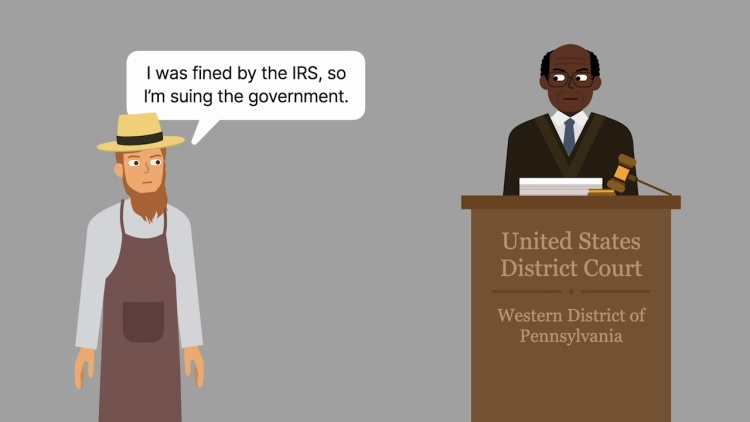United States v. Lee
United States Supreme Court
455 U.S. 252 (1982)
- Written by David Schleider, JD
Facts
Lee was a member of the Old Order Amish and worked as a farmer and carpenter. Between 1970 and 1977, Lee employed several Amish workers but did not pay social-security taxes for any of his employees, as social security was against the Amish religion. Under federal law, all employers were required to pay social-security taxes for their employees. However, 26 U.S.C. § 1402(g) created a narrow exception, allowing self-employed Amish persons to withhold social-security payments. In 1978, the Internal Revenue Service charged Lee for over $27,000 in unpaid taxes. Lee refused to pay and sued the United States (defendant), arguing that the government was required to exempt Lee’s payment of social-security taxes because of his religious beliefs. The district court held in favor of Lee, finding the statute unconstitutional. The United States appealed.
Rule of Law
Issue
Holding and Reasoning (Burger, C.J.)
Concurrence (Stevens, J.)
What to do next…
Here's why 899,000 law students have relied on our case briefs:
- Written by law professors and practitioners, not other law students. 47,000 briefs, keyed to 994 casebooks. Top-notch customer support.
- The right amount of information, includes the facts, issues, rule of law, holding and reasoning, and any concurrences and dissents.
- Access in your classes, works on your mobile and tablet. Massive library of related video lessons and high quality multiple-choice questions.
- Easy to use, uniform format for every case brief. Written in plain English, not in legalese. Our briefs summarize and simplify; they don’t just repeat the court’s language.





